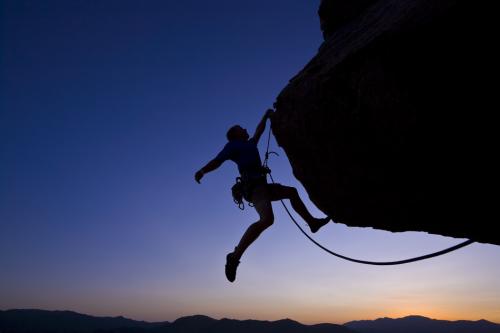Finding the Safe, Helpful People We Need

"I don't know what I would do without Steve," Tom said. "He came up to me at the funeral, shook my hand, and looked me in the eye. He didn't say a word. The next week, he sent me a text. Later he called. We got together for coffee. He sat there, and listened."
Garrett was Tom's only son. Tom felt the deep connection the first moment he held Garrett after he was born. As Garrett grew, he and his dad were extremely close.
Garrett was a healthy, athletic kid. After college, he wound up in the ER with an appendicitis. Complications set in. A blood clot ended Garrett's life. He was 23.
"Some days I can barely get out of bed. If I manage to text Steve, I feel better immediately. I can be myself with him," Tom shared.
Safe people make a massive difference
The people immediately around us have great influence on our grief process. We all need safe people in our lives.
What is a safe person?
They don't try to fix. They don't judge or belittle. They don’t give advice we haven’t asked for. They don't have an agenda for how we should progress. They don't need us to be a certain way. They don't see us as some kind of project. They aren't shocked by emotion or chased away by pain.
They allow us to be ourselves. They accept us where we are, as we are. They listen. And listen.
They seem comfortable with silence. They don't pretend to have answers. They enter our world and exist with us there. Their presence is powerful. Just being with them somehow brings comfort and encouragement to our hearts. They are a bit of sanity in all this craziness. They are solid ground for us in a desert of shifting sand.
Where can we find safe people? Honestly, they could be anywhere, and everywhere. In our family or circle of friends. In churches or civic organizations. In clubs or support groups. They might be mentors, ministers, grief counselors, or therapists. It could be someone we know, or someone we have yet to meet.
We need safe people. It's great if they come knocking on our door, but we can't count on that. We must find them. And the best way to find a safe person is to become one.
Safe people recognize each other. Becoming safe people can greatly enhance our own adjustment and recovery. As we learn to listen without judgment, accept others as they are, and refuse to fix, we liberate ourselves to love others and ourselves. Being a safe person is a part of grieving responsibly and in a healthy manner.
Safe people are positive, healing influences in our lives. Just one can make a life-altering difference.
“I’m not alone. There are others willing to walk this road with me.”
Adapted from the bestseller, Shattered: Surviving the Loss of a Child. Watch the Shattered videos here: Gary, Michelle.
Article Images




Comments